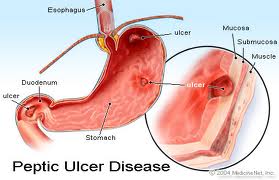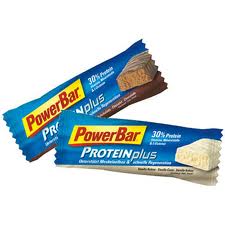I am the Registered Dietitian at Fortius Sport & Health, an athlete development centre that brings an integrated and multi-disciplinary team of sport & exercise medicine, science and training leaders to give you the very best in prevention, performance, treatment, education and research.
Irritable Bowel Syndrome
IBS Symptoms: Common & Unusual IBS Symptoms
Plus What Causes Irritable Bowel Syndrome. Vancouver Dietitian IBS.
Irritable bowel syndrome (IBS) is a condition characterized by chronic abdominal pain and changes in bowel habits. The exact cause of IBS is not known, but it is believed to be the result of an interaction between various factors. IBS is one of the most common gastrointestinal (GI) disorders, affecting about 20% of the general population.
Common IBS symptoms include abdominal pain, bloating, gas, constipation, diarrhea and feeling bloated. There tend to be one or two predominant symptoms or triggers for IBS, which can make it harder to diagnose. However, with the right dietary and lifestyle changes, most people with IBS can manage their symptoms and reduce the frequency of flare-ups.
Inflammatory Bowel Disease
What is Inflammatory Bowel Disease and What are the Symptoms?
Inflammatory bowel disease (IBD) is a group of conditions that cause inflammation and chronic inflammation in the gastrointestinal tract. This can lead to a variety of symptoms affecting the digestive system and other organs.
Inflammatory bowel diseases are a group of conditions that cause inflammation and chronic inflammation in the gastrointestinal tract. This can lead to a variety of symptoms affecting the digestive system and other organs.
In IBD, the immune system attacks the digestive tract, either by damaging the mucosal barrier or by causing chronic inflammation. As a result, there are many symptoms that may occur as a result of IBD. However, the exact cause of IBD is not fully understood.
Confused about how to manage your symptoms of Irritable Bowel Syndrome, Crohn’s Disease or Ulcerative Colitis?

Does Non-Celiac Gluten Sensitivity actually exist??
So many people today are avoiding gluten – for most it is because they believe gluten gives them digestive issues (i.e. gas, bloating, or changes in bowel movements) or makes them feel fatigued. This has created a huge trend in today’s market for gluten-free items, and more and more people are hopping on the gluten-free train. But does gluten-sensitivity exist for people who do not have Celiac disease? Is it worth trying out if you’re experiencing issues yourself?
The Gut-Brain Connection
I see many clients with digestive health disorders. Whether I’m treating someone with IBS,Crohn’s Disease, Ulcertive Colitis, Celiac Disease, GERD, etc… I can always tell at the beginning of a follow-up appointment before my client even says a word if my nutrition plan helped them. If it did, they walk in like a huge weight was just lifted off their shoulders, walk in smiling (or holding back a giant smile!), and generally with a very positive energy. It can change someone’s life completely! I love being able to help make such a change in someone’s life, which is partly why I’m so passionate about helping people with digestive health disorders.
Runner’s Trots Anyone??

What is it? Those of you who experience it, know it well. It’s when runners have diarrhea during or immediately after a run, or feel an 
Food is fuel, at every time of day.
No matter what time of day, we do need food to fuel us. Whether your goals are achieving optimal performance, weight loss, muscle building, energizing your life – prioritize food as much as you would your workout, training session, or even competition/race.
Early morning workouts in particular seem to pose an extra challenge. I often hear clients and friends say they don’t eat breakfast before a morning workout. I’ve heard every excuse in the book. Too tired to get up even 15 minutes earlier to eat, not hungry, food makes me nauseous if I eat too early, trying to lose weight so don’t need the extra energy, or simply just unaware that it was important.
First, breakfast is ALWAYS important. It kick starts your metabolism, similar to warming up your car on a cold day. This means you will boost your energy level first thing in the morning rather than waiting an hour or more. A side benefit to this is your body will start burning more calories at rest sooner – which can be beneficial for weight loss or maintenance. Breakfast before a morning workout is especially important as you need fuel for your empty tank (or body!). Yes, you will have some energy without putting any food in you beforehand. However – because you haven’t eaten anything for the past 7-12 hours this energy will come from your body breaking down internal stores of fat and muscle. This in turn will leave you feeling fatigued, and result in a decrease in strength and endurance. Making it much more difficult for you to achieve your goals.
Spring into Fall!

People often think dieting or doing a cleanse are the best ways to kick some unhealthy habits and turn over a new leaf. However, if you take a closer look – is the diet or cleanse you’re interested in something that you think you will be able to sustain for the long term? Often, fad diets and cleanses offer a quick fix instead of a sustainable lifestyle change. Yes, you may be able to shed a few pounds but is it fat that you’re losing or muscle mass? Losing weight too quickly is often times both fat AND muscle mass that you’re losing, in addition to a ton of body water. Not to mention the lack of nutrients in most fad diets and cleanses which would leave you feeling tired, fatigued, and at risk for nutrient deficiencies leading to health problems in the future.
More on Digestive Health Issues…
On the subject of digestive health, most of my previous blog posts have focused on Irritable Bowel Syndrome (IBS) and Inflammatory
What’s the Deal with Sports Supplements?

I was recently interviewed very briefly by a student reporter on CBC news who did a story all about “exercise supplements”. Watch the short clip here. I would like to clarify a couple things they misquoted me on:
Living Wheat-Free
Although I have an earlier post talking about how whole grains, particularly wheat, is not necessarily evil – I have recently discovered myself to be sensitive to wheat. I still stand by that blog post, but do encourage you to eliminate wheat only if you 




